Kuwait News

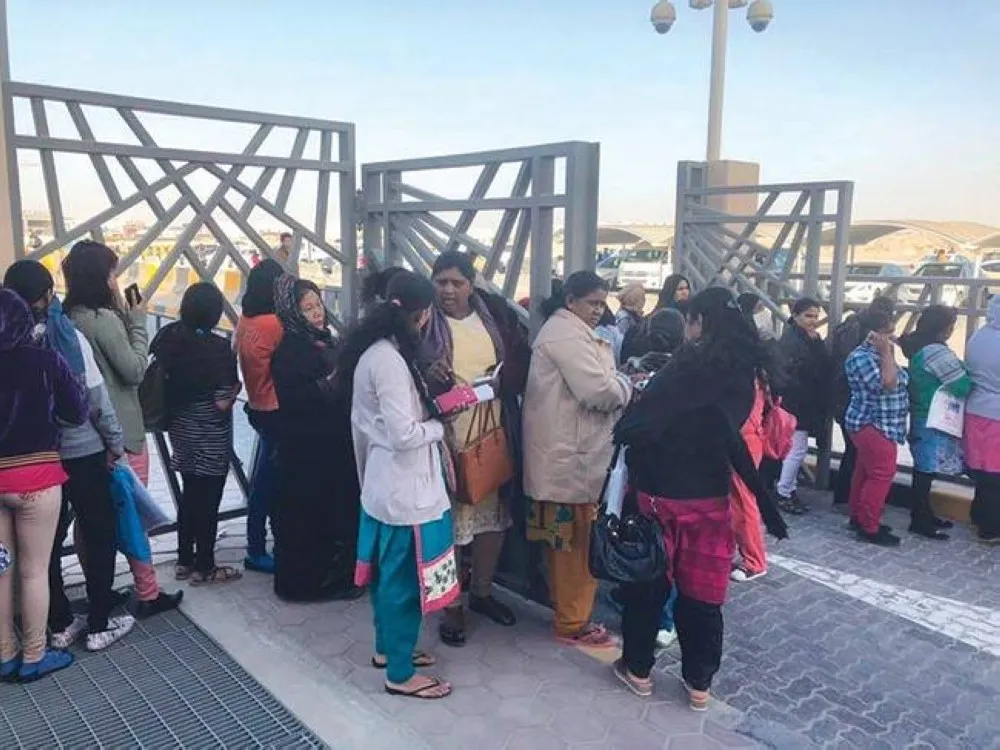
KUWAIT: The Ministry of Interior made a significant announcement today, Sunday, regarding the initiation of a process to assist violators of the residency law in either departing from the country or rectifying their legal status. This initiative will be carried out in two distinct periods, aiming to streamline procedures for affected individuals.
During the first period, operating within official working hours and across all governorates, individuals seeking to rectify their residency status within the country can do so by visiting the Department of Residence Affairs in their respective governorate. This measure is intended to provide a straightforward avenue for residents to address their legal status concerns.
Additionally, the Ministry outlined an evening period, spanning from 3 pm to 8 pm, during which violators interested in leaving the country will be accommodated. Those possessing new passports or travel documents are encouraged to avail themselves of this opportunity by registering them in the computer system at the Residence Affairs Departments of Mubarak Al-Kabeer and Farwaniya Governorates.
In a press statement, the Ministry underscored its commitment to facilitating the departure or regularization of residency status for affected individuals, thereby ensuring compliance with legal regulations while providing necessary support to residents in navigating administrative procedures. This initiative reflects the government’s dedication to upholding the rule of law while offering practical solutions to residency-related challenges faced by certain segments of the population.
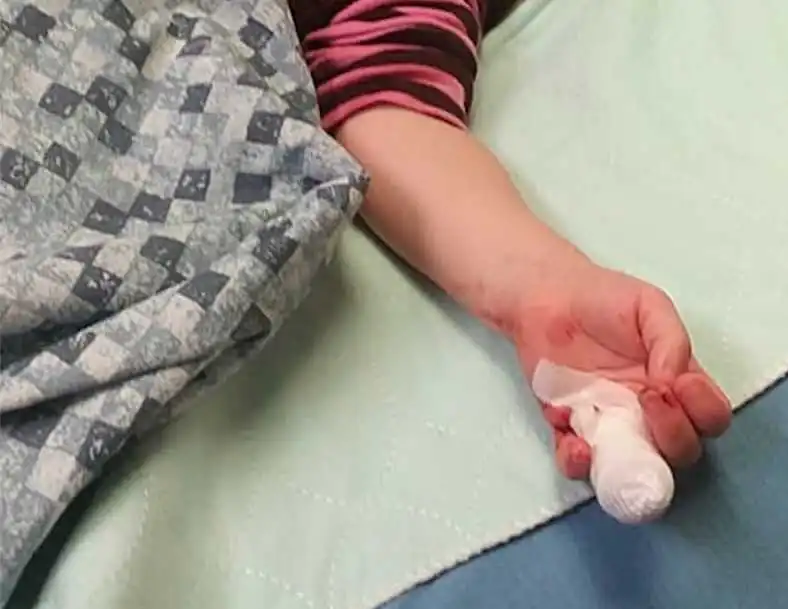
KUWAIT: A distressing incident has emerged in Mubarak Al-Kabeer Governorate, where a child suffered a severe injury resulting in partial amputation of his finger while under the care of a nursery. The guardians of the nursery and the individual responsible for supervising the children are now facing accusations of negligence.
Nursery in Mubarak Al-Kabeer accused of trashing child’s severed finger.
The incident came to light when a concerned citizen complained to the security authorities in Mubarak Al-Kabeer, detailing the events surrounding his child’s injury. According to the complaint, the child was attending a nursery in the governorate when the father received a distressing call informing him of his son’s injury during playtime.
Rushing to the nearby clinic, the father found his son in distress, with his hand bleeding profusely. Taking matters into his own hands, he swiftly transported his child to the hospital, where medical professionals made the grim discovery that part of the child’s finger had been amputated.
In a harrowing turn of events, when the doctor requested the amputated part for examination, the father was shocked to learn that it had been discarded. Upon further inquiry, it was revealed that the nursery staff, including the individual overseeing the children, had mistaken the severed finger for congealed blood and disposed of it in the garbage.
Expressing outrage at the negligence displayed by the nursery and its staff, the father holds them responsible for failing to promptly address the medical emergency and ensure proper treatment for his son.
A security source informed Al-Rai that legal action is being pursued against the nursery and the individuals involved in the supervision of the children. The incident underscores the importance of vigilance and immediate action in ensuring the safety and well-being of children under institutional care.
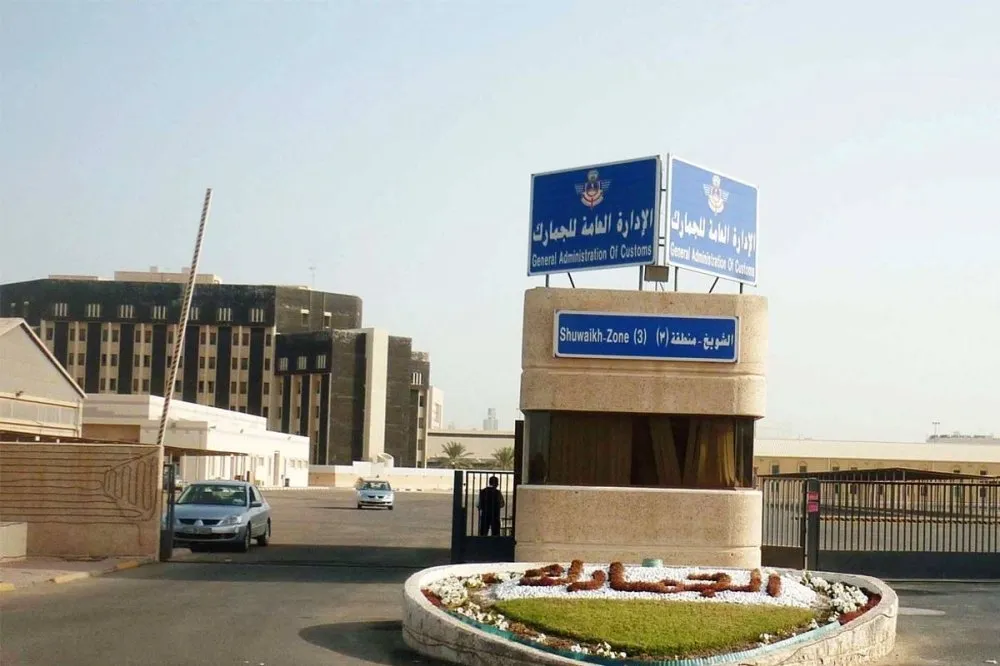
KUWAIT: The Director General of the General Administration of Customs, Abdullah Al-Sharhan, has issued Customs Instructions No. 21 of 2024, marking a significant development in GCC customs procedures. These instructions, formulated in line with recommendations from the Gulf Cooperation Council Customs Union Authority, address the issue of repetitive customs duty payments for vehicles moving between GCC countries.
Effective from April 23, 2024, the new instructions introduce a direct tax transfer mechanism aimed at streamlining customs clearance processes for both new and used cars. Under the directive, vehicles can obtain customs clearance within a maximum period of two years from the date of initially collecting customs duties in the first customs declaration.
The primary objective behind this directive is to prevent the duplication of customs tax payments within GCC countries, thereby facilitating smoother cross-border movement of vehicles. Importantly, this measure eliminates the need for GCC citizens to engage local agents or rely on the first importer to obtain notification of customs duties.
The issuance of Customs Instructions No. 21 reflects ongoing efforts to enhance cooperation and standardization within the GCC customs framework. By implementing this directive, authorities aim to promote greater efficiency and transparency in customs procedures, ultimately benefiting individuals and businesses engaged in cross-border trade and transportation of vehicles.
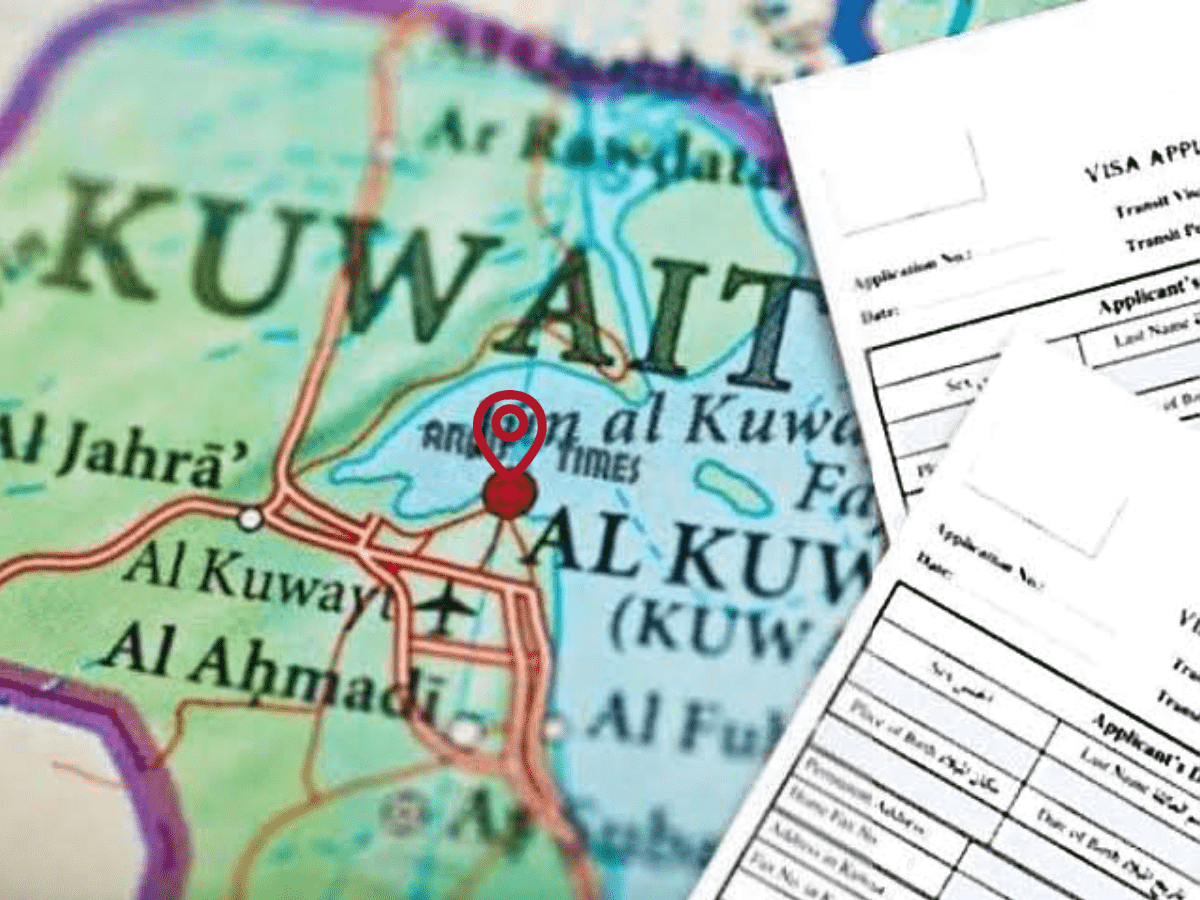
KUWAIT: Deputy Prime Minister, Minister of Defense, and acting Minister of Interior Sheikh Fahad Yousef Al-Sabah issued a ministerial decision amending some provisions of Ministerial Resolution No. 957/2019 on the executive regulations of the Foreigners’ Residency Law and its amendments, reports Al-Anba daily. Article One of the decision states that Article 12 of Ministerial Resolution No. 957/2019 is amended as follows: ”A foreigner who entered the country by Clause Nos. 1-7 and 14 of Article Four of this decision may remain here without a residence permit for a period not exceeding two months from the date of his entry.
Procedures must be initiated to obtain regular or temporary residency within this period. “Regular residence data are recorded in the civil identification card issued by the Public Authority for Civil Information (PACI), while data related to the temporary residency stipulated in Article 14 of this decision are recorded by the mechanism specified by the Residency Affairs General Department in the Interior Ministry.”
Article Two mandates the concerned undersecretary to implement this decision, which shall take effect from the date of its publication in the Official Gazette. Meanwhile, the Deputy Prime Minister, Minister of Defense, Acting Minister of Interior, and Chairman of the Board of Directors of the Public Authority for Manpower (PAM) Sheikh Fahad Al-Yousef issued a ministerial decision regarding the mechanism for granting work permits and the transfer of migrant workers recruited with work permits and the prescribed fees, reports Al-Seyassah daily.
The decision stipulates the following:
Article 1 – The employer must obtain work permits according to an estimate of need after obtaining the approval of the concerned department of PAM. An additional fee of KD 150 will be collected for each work permit by the provisions of this decision.
Article 2 – The following categories are exempted from paying the additional fee referred to in Article One of this decision:
1 – Companies wholly owned by the government.
2 – Hospitals, dispensaries, medical centers, and medical clinics licensed by the Ministry of Health.
3 – Universities and private colleges.
4 – Private schools.
5 – Foreign investors approved by the Investment Promotion Authority.
6 – Sports clubs, federations, public benefit associations, cooperative societies, trade unions, foundations, and charitable endowments.
7 – Agricultural plots licensed by the Public Authority for Agricultural Affairs and Fish Resources (PAAAFR).
8 – Fishing.
9 – Barns, grazing sheep and camels.
10 – Industrial establishments and small industries.
Article 3 – In cases where it is permissible to transfer workers from one employer to another by the procedures in force at PAM, the transfer of a migrant worker who was brought in with a work permit to another employer is permitted by the provisions of this decision, which is before the lapse of three years and for a fee of KD 300. The ban imposed on the movement of labor outside the sectors referred to in the decisions issued by PAM will continue by its procedures.
Article 4 – The Director General of PAM may issue administrative decisions and circulars regarding the implementation of the provisions of this decision, particularly the conditions and controls for granting or suspending permits.
Article 5 – The Board of Directors of PAM must direct its affairs to prepare a study on the effects of implementing this decision before one year has passed from the date of its implementation, and present it to the concerned minister along with any recommendations that the board deems appropriate.
Article 6 – – Suspending the provisions of ministerial Resolution No. 12/2017 regarding adding fees to employers who meet the conditions in the event of recruiting workers over the number allocated to them.
– Suspending the provisions of Ministerial Resolution No. 26/2018 regarding the fees applied to employers holding second-class work permits.
– Suspending the provisions of Chapter One regarding “Categories of Permits” from part two of the list of rules and procedures for granting work permits referred to, during the validity period of this decision mentioned in Article 7 below.
– Excluding government contracts and projects and small and medium enterprises for holders of licenses registered with the Business Owners Service Department are excluded from the application of the provisions of this decision.
Article 7 – This decision shall be effective starting from June 1, 2024 for one year, and shall be published in the official gazette. The concerned authorities shall be informed and shall implement what is stated therein.

KUWAIT: Kit Phuang, the Secretary-General of the Vietnamese Incense Association, said Kuwait is one of the leading consumers of incense and oud oil globally, reports Al-Jarida daily. He noted Kuwaitis’ preference for high-quality agarwood, which has led him to visit Kuwait multiple times to market and introduce Vietnamese products. Phuang emphasized that while Kuwaitis often import incense and oud oil from countries like the Philippines, India, Malaysia, Indonesia, or Cambodia due to lower prices, Vietnamese oud is renowned for its superior quality and fragrance.
Vietnamese oud is exported not only to the Middle East but also to countries like China and Japan. Phuang explained that oud prices range from $100 to $1 million per kilogram, with the highest-priced oud being bought by the Chinese for medicinal purposes and decoration, rather than burning. He attributed the variation in prices to the age of the agarwood tree, noting that older trees, around 100 years old, produce the most expensive and rare incense.
Despite the rarity of high-quality oud, Phuang praised Kuwaitis for their expertise in incense and oud oil, as they prioritize quality over price and have extensive experience in daily usage. He described dealing with Kuwaitis as a unique and enjoyable experience due to their professionalism and openness to sharing their knowledge. He added, after 10 years, an agarwood tree reaches between 8 and 14 meters in height. The agarwood tree forest spanning about 3 million square meters and employing around 100 farmers is owned by the Phuang family. He went on to say, the Vietnamese Incense Association comprises approximately 250 members, with a board of directors consisting of 20 people.
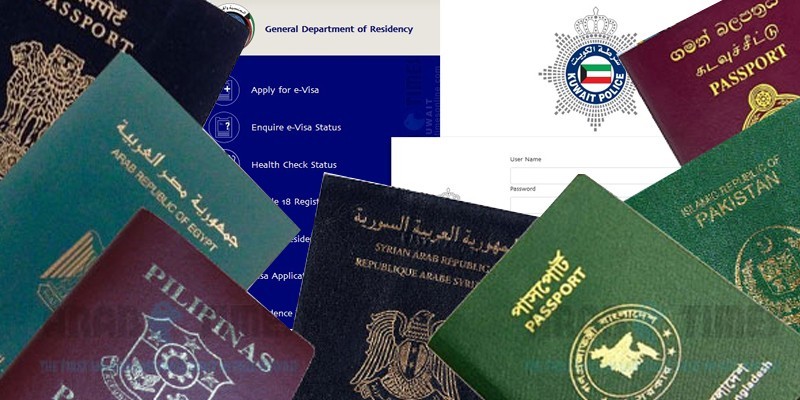
KUWAIT: To address the high labor wages and the labor shortage in the country, a meeting held under the chairmanship of the Deputy Prime Minister, Minister of Defense and Acting Minister of Interior Sheikh Fahad Yousef Al-Sabah, the Board of Directors of the Public Authority for Manpower (PAM) approved to amend the mechanism for granting work permits, transferring expatriates brought from abroad with work permits, and imposing an additional fee on them, reports Al-Seyassah daily.
PAM’s Board of Directors unanimously decided to amend the mechanism that was previously in place for granting work permits. Employers can now bring in migrant workers from abroad as estimated for their license, instead of the previously set quota of 25 percent for overseas recruitment and 75 percent for local recruitment. This is aimed to reduce the high wages as a result of the labor shortage as well as to develop the business environment. The decision will come into effect as of June 1, 2024. The previous decision obliged business owners, according to their activity categories, to obtain specific permits from abroad and complete recruitment through local hiring. This led to an increase in labor wages and imposed a higher burden on the citizens.
The new decision imposes an additional fee of KD 150 for issuing a work permit for the first time. This is aimed to achieve greater employment stability for employers. It also imposes a fee of KD 300 for the transfer of migrant workers from one company to another if they have not not been in the country for more than three years. In both cases, the employer’s approval is required for the transfer. The decision aims to limit visa-trade and make it easier for employers to carry out their commercial activities and develop the business environment. It is also aimed to reduce the cost and wages of labor, which will contribute to lower costs in the construction and contracting sector and other activities in the country.
In other news, The Public Authority for Manpower has developed a comprehensive program for regular and ongoing inspections of institutions and facilities to ensure compliance with labor laws and specific regulations, reports Al-Anba daily quoting reliable PAM sources. As part of its ongoing awareness campaigns conducted throughout the year via its websites, the Authority has initiated a “Flash” campaign urging employers to adhere to all provisions of the Labor Law and regulations governing the labor market. This includes ensuring that employment contracts are honored and that workers are assigned tasks specified in their work permits by the Authority.
The Authority emphasized that failure to assign tasks as per the work permit could lead to penalties, including imprisonment for up to 3 years and fines ranging between 2,000 and 10,000 dinars per worker, or both. Moreover, the Authority has cautioned business owners against employing workers registered under another employer’s files. Violation of this regulation could result in similar penalties as mentioned above. In another development, the Public Authority for Manpower, in collaboration with the Ministry of Health and the Public Authority for Youth (Work Makers Team), facilitated 137 job opportunities for citizens seeking employment in the private sector. These opportunities arose from government contracts with the Ministry of Health.
During the event, the Authority provided details about the available positions, the nature of work, and addressed queries from applicants. Personal interviews were conducted with 137 job seekers, followed by a training program spanning five weeks for successful applicants. The training program, focused on Ministry of Health contracts, concluded with the hiring of supervisors and first supervisors to oversee cleaning, internal transportation, and waste disposal services. This initiative aligns with PAM’s commitment to promoting employment opportunities for Kuwaiti citizens in the private sector and ensuring job security in government contracts, as outlined in Kuwait’s regulations for the nationalization of government contracts. Source: By Al Seyassah / Arab Times

KUWAIT: Fourteen workers were apprehended after an altercation with their financial officer in the heart of the Capital city on Thursday. According to reports from Al-Anba, the incident unfolded when a group of expatriate workers forcibly entered their workplace and assaulted the financial official, resulting in injuries Security personnel swiftly intervened, bringing the situation under control and escorting the workers to the Salhiya police station. An official source revealed that the Ministry of Interior received a distress call reporting the attack.
Upon arrival at the scene, it was confirmed that approximately 14 workers had barged into the company premises, targeting the accountant’s office. Their grievance appeared to be related to unpaid wages, which prompted the violent outburst. The injured accountant was promptly taken to Al-Amiri Hospital, where medical assessments documented neck bruises, a head injury, as well as scratches and bruises. Following the incident, the workers were detained and handed over to the relevant authorities for further investigation and legal action.


